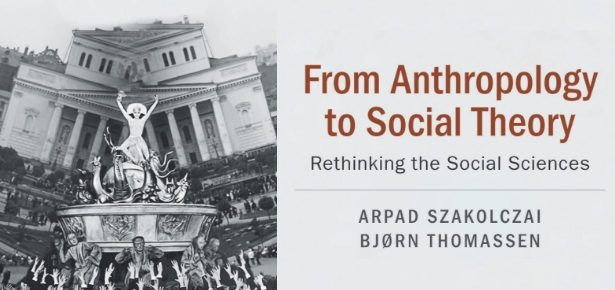
Social theory is that kind of theory which should help us to understand and explain this modern world in which we all live. What caused the rise of the modern world? What are the driving forces of the constant change inherent to modernity? And what is the underlying ‘spirit’ of such forces?
Social theory – and sociology as a discipline – can be traced back to 19th century Europe. It was indeed an attempt to come to terms with modernity. However, social theory was also part and parcel of that modernity, with its centers of learning placed in Germany, France and Britain. Often enough sociologists even came to serve as influential ideologues of modernity, failing to gain the necessary distance to their object of study. This has hampered social theory from its inception up until the present. Social theory today finds itself in a deadlock and is proving increasingly unable to offer perspectives that are of genuine help to understand and diagnose the current global condition.
In our book, From Anthropology to Social Theory: Rethinking the Social Sciences, we propose that one way of overcoming this problematic legacy is to work through anthropology. We argue that contributions from a series of maverick anthropological thinkers can provide social theory with new insights and vitality.
While it was always recognized that social theory needs history, we argue that social theory also must be inspired by anthropology. The role of anthropology should go much beyond representing a view from ‘below’, a politically correct appreciation of cultural diversity, or a taste for the exotic and marginal. It involves attention towards key theoretical concepts developed by maverick anthropologists that uniquely facilitate a proper understanding of the modern world and some of its underlying dynamics. Such concepts include liminality, imitation, gift-relations, participation, trickster, and schismogenesis.
Our book is therefore an attempt toward revalorizing ideas and even ‘visions’ for the social sciences that were either ignored or pushed to the margins, and for all the wrong reasons. Examples include Arnold van Gennep, Marcel Mauss, Paul Radin, Lucien Lévy-Bruhl, Gregory Bateson, Victor Turner, Colin Turnbull, but also Alfred Gell, Johan Huizinga, Gabriel Tarde or René Girard. Taking their ideas seriously invites for a fundamental – even foundational – rethinking of the history and present of the social sciences. In each their way, these thinkers all broke with what we recognize as the modern-centric foundations of social theory. The problem with social theory, we argue, is not at all ‘ethnocentrism’, but rather the deeper ways in which our thinking about the world has become entrapped in the very language of modernity: modernocentrism.
The rise of modernity did not follow an inexorable path, but is rather the outcome of a series of liminal moments where trickster figures, instead of charismatic leaders, gained the upper hand by proliferating imitative processes, resulting in schismogenic developments. The perspective gained helps to overcome the triple entrapment of the present: utilitarian knowledge (or alchemic technology), the democratic public sphere (or theatricalised politics), and the exchange economy (or fairground capitalism).
Latest Comments
Have your say!